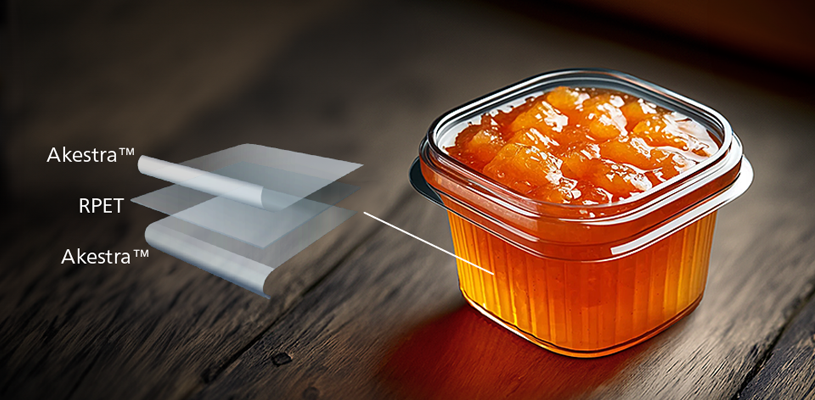Navigating PPWR regulations for hotfill food packaging
The recent adoption of the provisional Packaging and Packaging Waste Regulation (PPWR) by the European Parliament marks an essential moment for the food packaging industry. This regulation mandates significant shifts in packaging designs, including hotfill food packaging. PPWR emphasizes recyclability and reduced greenhouse gas emissions, reflecting a growing awareness and responsibility towards environmental impacts, aiming for a substantial reduction in greenhouse gases.
Packaging challenges posed by new PPWR requirements
Under the new PPWR framework, packaging used in the food industry must now include a minimum amount of recycled content and be recyclable at scale. The regulation aims to minimizing greenhouse gas emissions associated with packaging materials. These requirements pose a considerable challenge for many existing packaging solutions, which often fall short due to current technological and infrastructural limitations.
Key requirements outlined by the PPWR include:
- Recycled content: All packaging designs must incorporate a certain percentage of recycled material, pushing companies to integrate more sustainable resources in their production cycles.
- Recyclability: Ensuring that packaging can be recycled at scale demands significant adaptations in both design, infrastructure, and material composition.
- GHG emissions reduction: The regulation aims for a maximal reduction in emissions by 2040, necessitating innovative approaches to material processing and waste management.
Akestra™: a forward-thinking solution
In response to these new standards, Akestra™ can be a transformative solution in the hotfill packaging industry. Leveraging existing technologies, Akestra™ offers a scalable, traceable recycling process for PET tray to tray. This not only aligns with the PPWR's demand for recyclable packaging but also significantly reduces greenhouse gas emissions.
How the Akestra™ solution stands out:
- Scalability: Akestra™ provides a practical, scalable recycling solution, ensuring that the transition to more sustainable packaging is manageable and efficient for food packaging manufacturers.
- Technology alignment: By utilizing current hotfill packaging technologies, Akestra™ aligns with existing production processes, making it easier for businesses to adopt without substantial new investments in infrastructure.
- GHG emissions reduction: Compared to conventional plastics such as polystyrene, Akestra™ significantly reduces CO2 emissions, supporting the PPWR’s objectives towards a lower carbon footprint in the packaging industry.
A recent survey conducted by Perstorp among food industry players has shown promising support for Akestra™, with 83% of respondents believing that it could either 'likely' or 'significantly' help them meet the PPWR requirements.
Scaling up production and impact
Currently, Akestra™ has the capacity to handle over 10,000 tons of packaging annually, which contributes to reducing up to 25,000 tons of CO2 emissions each year. These figures are indicative of Akestra™’s capability to meet and exceed the future demands set by the PPWR. Looking ahead, plans are underway to expand this capacity further and adapt to the evolving regulatory landscape.
Join the movement towards more sustainable hotfill food packaging
As the industry moves towards a more sustainable future, Perstorp invites businesses and stakeholders to join this transformative journey. By adopting Akestra™, companies can comply with the new PPWR standards and also contribute to a more sustainable and responsible value chain.
